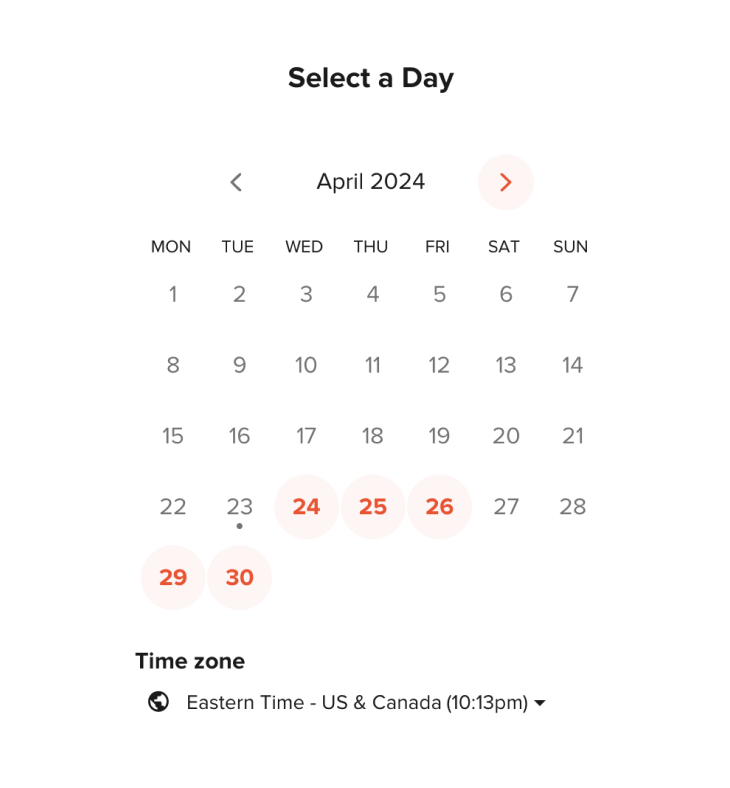How to Get a Cannabis License in California – 2024 Guide
This guide provides a detailed overview of the steps and requirements necessary to obtain a cannabis license in California as of 2024. It covers essential information on local permits, state regulations, documentation, application processes, and compliance measures to help entrepreneurs successfully navigate the complexities of the cannabis industry in the Golden State.

Legalizing cannabis in California has created a promising opportunity for entrepreneurs and business owners, but navigating the licensing process can be complex and challenging.
Here is a comprehensive guide to obtaining a cannabis license in California, including requirements, procedures, and important things to remember when opening your dispensary in the Golden State.
Cannabis License Regulations in California
California became the first state to permit medicinal cannabis use when voters approved the Compassionate Use Act in 1996. In 2016, the state further legalized the cultivation, possession, and use of recreational marijuana, leading to a significant expansion of its cannabis industry.
In 2020, the Golden State’s cannabis market saw impressive growth, reaching $4.71 billion in total sales followed by a record-breaking $5.78 billion in 2021. However, recent years have brought challenges, with sales and revenue affected by competition from the illicit market and a booming hemp industry that has tightened profit margins. Despite these hurdles, California’s legal cannabis market is projected to grow at a compound annual rate of 9.4% from 2024 to 2030, reflecting the industry’s resilience and long-term potential.
California cannabis businesses can not operate without a valid license granted by the Department of Cannabis Control (DCC), the authority that heavily regulates the industry’s commercial activities in the state. Furthermore, you cannot transfer obtained licenses; each location where the business operates needs a separate license.
Currently, California has over 8,700 active cannabis licenses, with no cap on the number of licenses. This includes licenses for:
- Cultivation
- Manufacturing
- Distribution
- Testing
- Retail
- Cannabis Event Organizers
- Microbusiness
Despite having no cap on licenses, cannabis businesses in California face significant regulations and compliance hurdles to obtain their licenses.
How to Obtain a Cannabis License in California?
Here are the general steps involved in obtaining a cannabis license in California. Some of the steps discussed might differ depending on the license type, so always check with the DCC while you’re applying for a cannabis license.
Step 1: Complete local permits
Cities and counties have specific rules and permitting requirements for cannabis businesses. Some do not allow cannabis businesses at all. Ensure that you set up your business in an area that allows commercial cannabis activity and complete any permitting requirements in your city or county before applying for a state license.
Step 2: Learn state regulations
Understand the DCC’s requirements for standard operating procedures (SOPs), training employees, and how facilities should be set up.
Step 3: Gather application information & documents
DCC has resources to help create the documents you need during the licensing process. Email the DCC licensing team ([email protected]) if you have questions about these requirements.
Step 4: Create a licensing system account
DCC has two licensing systems depending on the type of license you’re applying for. Make sure you create an account in the system that corresponds to your desired license.
Step 5: Complete the application
Fill in the required information in the licensing system and upload the necessary documents. Disclose all your business’s owners and financial interest holders. The DCC licensing system lets you save your progress as you go, so you don’t need to complete all of it in one sitting. Sign and submit your application upon completion.
Step 6: Pay the application fee
When you finish your application, the system will tell you how to pay your application fee. DCC will not process your application until you pay the necessary fees.
Step 7: Answer any emails from the licensing team
The DCC licensing team will email you if any part of your application is incomplete or insufficient. They will tell you what you need to correct and give you a deadline to respond. Respond with complete information as quickly as possible so that the DCC can process your application promptly.
Step 8: Pay your license fee
Once your application is approved, you’ll receive an email with instructions on how to pay your license fee. You can pay the fee through the licensing system via bank account/check, money order, or credit card. You can also pay in cash by setting an appointment to visit the DCC’s office in person. No cash payments are accepted without an appointment. Your license will be issued once payment is received.
Step 9: Post your license
DCC licenses are valid for one year. Once issued, you can download your license certificate from the licensing system. Post your certificate in a visible place near the entrance of your business so your visitors can see it.
Develop a Solid Business Plan
The crucial step in getting a cannabis dispensary license is to develop a business plan, which will be used to secure the necessary financial resources. A solid business plan is one of the most essential tools in an entrepreneur’s toolkit. In general, your cannabis business plan should include the following:
- The physical location of your dispensary
- Funding plan, or the source of your startup and ongoing capital
- Sourcing plan for procuring cannabis products
- Revenue projections
- Estimate or actual number of employees
- Diversity and equity plans
- Marketing plan
- Safety and security plan
- Technology plan
- The insurance company you will be opting for
- Other relevant information you want to document
A well-crafted business plan is essential for the success of your business. It contains all the necessary information to present to potential investors and lenders, outlining the steps you will take to start and expand your business. Agencies like the Small Business Administration (SBA) can help you find funding sources from private companies or banks if you need help getting it.
Overall, while developing your business plan, ensure that you follow California dispensary laws and do not include anything that goes against the rules and regulations.
Note: It is best to seek professional legal and business assistance to ensure your business plan meets the specific requirements if you’re new.
Assemble the Necessary Documentation
Assembling the necessary documents for the application can be time-consuming. The type and extent of documentation may change depending on the type of license you opt for.
Here are some of the general documents you will need to upload to the licensing system during the application process:
- Evidence of legal right to occupy and use the proposed location
- Premises diagram
- Proof of a surety bond of at least $5,000
- Limited waiver of sovereign immunity, if applicable
- Evidence of California Environmental Quality Act (CEQA) compliance
- Certificate of qualification, registration, or status issued by the California Secretary of State*
- Complete list of every owner of the commercial cannabis business
- List of all financial interest holders
- Optional: Copy of a license, permit, or other authorization from the local jurisdiction where the licensed premises will be or are located.
You can get a full list of the documentation needed for your license at DCC’s website or look at this application checklist.
*Required only if the business is a foreign corporation or foreign LLC.
Submitting the Application
Once you’re done with assembling the necessary documents, you can move on to filling out and submitting your application for a California Cannabis License.
First, you have to create a licensing system account on the DCC’s website. The DCC has three licensing portals for different types of licenses, so make sure to use the one that corresponds to your license type.
The first part of the application requires information about your cannabis business, including (but not limited to):
- Business name
- Owner/s
- License types
- Business location
The license application is long and comprehensive. Make sure you complete each part thoroughly and double-check to ensure everything is accurate. The application saves your progress as you complete it, so don’t worry about rushing the application and completing it in one sitting.
Once you’ve inserted the required information and uploaded the necessary documentation, you must pay your application fee before submitting your application.
Application Fee
There are two types of fees for cannabis licenses:
- Application Fees – due when you submit your application
- License fees – due when your application is approved. This is also due each year when you renew your license.
Application and License fees differ based on your license type and the size of your cannabis business. Fees for different types of licenses are outlined below:
1. Retail
- Application Fees: $1,000
- Annual License Fees: $2,500 – $96,000 (depending on the Gross Annual Revenue (GAR) of the business)
2. Cultivation
- Application Fee: $135 to $8,655 (depending on the type of license)
- Annual License Fees: $1,205 to $77,905 (depending on the type of license)
3. Manufacturing
- Application Fee: $500 or $1,000 (depending on type of license)
- Annual License Fees: $2,000 to $75,000 (depending on license type and GAR)
4. Distribution
- Application Fees: $1,000
- Annual License Fees: $200 to $180,000 (depending on license type and GAR)
5. Testing Laboratory
- Application Fees: $1,000
- Annual License Fees: $3,000 to $112,000 (depending on GAR)
6. Cannabis Event Organiser
- Application Fees: $1,000
- Annual License Fees: $3,000 to $20,000 (depending on the number of events)
Note: Temporary licenses for cannabis events are $1,000 per event.
7. Microbusiness
- Application Fees: $1,000
- Annual License Fees: $5,000 to $300,000 (depending on GAR)
Application Review and Compliance Inspection
After the application is submitted, the DCC conducts a thorough review of the application before granting the license. At this stage, you may be asked to submit additional documentation or information regarding your application.
The application process generally takes a few months. After approval, you will be issued a provisional license allowing you to start your operations while waiting for the final license.
Before getting your license, you will be subjected to compliance inspections by the DCC and other relevant agencies. This is to ensure your business and its operations comply with state regulations.
These inspections assess your compliance with the following:
- State laws
- Regulations
- Safety standards
- Security
- Record-keeping
- Inventory management
- Sanitation
To pass the compliance inspections and receive your license, it’s important to be well-versed in state and county cannabis regulations and ensure that your business follows them properly.
Regular internal compliance audits can help you identify and address areas of non-compliance in your operations so that you can pass any inspections.
It is also important to maintain ongoing communication with the licensing authorities throughout the process. This includes promptly responding to inquiries or requests for additional information and keeping them updated on any changes or developments related to the application.
Receiving the Final Application
Once the application review and compliance inspections are completed, the DCC can approve your license.
At this stage, you are required to pay the annual license fee. Once you clear all the dues, you can operate your cannabis business with ease and a valid final license!
Your Cannabis Business Deserves the Best
Remaining Compliant with California Regulations:
It’s crucial to remain compliant with the state regulations and license requirements even after receiving your final license. Failing to comply with the regulations can result in hefty fines and the risk of losing your license.
Here are common compliance measures to keep in mind:
- Regularly updating Metrc, California’s seed-to-sale tracker
- Notification of theft, loss, and criminal activity
- Compliance with product testing, packaging, and labeling requirements
- Compliance with Insurance and inventory requirements
- Security regulations
- Compliance with record-keeping regulations
To remain compliant, you can notify the DCC of changes in business operations by filling out the Licensee Notification and Request Form (DCC-LIC-028) and submitting it for approval.
Note: Establish robust compliance protocols aligned with California regulations and stay informed about any regulatory updates or changes in the state cannabis regulations.
Final Thoughts
Navigating California’s cannabis business licensing process can be complex and resource-intensive, but it’s a critical step for entrepreneurs looking to thrive in this competitive market. With California’s industry presenting unique opportunities for growth and innovation, your cannabis business’s success will rely on maintaining strong compliance protocols and closely monitoring regulatory updates.
By following the steps in this guide and staying informed, you will be well-prepared to navigate the complexities and maximize your chances of acquiring a cannabis license in California.
Remember to stay insured and informed. Seek professional advice when necessary, and stay committed to operating a compliant and responsible cannabis business according to California regulations.
Protecting your cannabis company can seem confusing; however, we’re a full-service insurance brokerage working with carriers worldwide to offer you the best coverage possible. We’re here to help! Please reach out to us today by emailing [email protected] or calling 646-854-1093 for a customized letter of commitment or to learn more about your cannabis insurance options.




